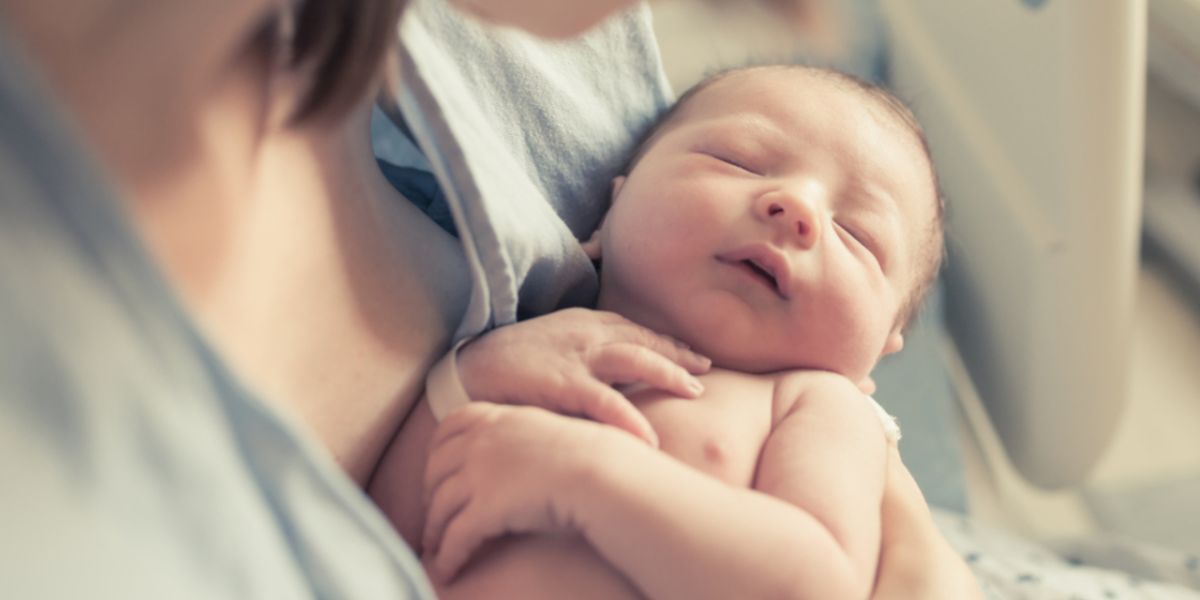
This article provides some information about the culture and the customs of Dominicans when giving birth and what an expat needs to know if giving birth in the Dominican Republic.

Why do Dominicans have large families?
Many people still have large families in the Dominican Republic because children are a form of pension. There is no social security, no state pension, and very few private pensions, so when you stop working, the income stops, too. Hence, all children will always give their parents money, feeling that it is their duty to do so. The more children you have, the more income you will have when you retire.
How Dominicans give birth
When it comes to giving birth, most women will go to public hospitals, and those who can afford it go to private clinics. According to the World Health Organization, the recommended rate for a C-section in a country should be between 5% and 15%. The rate in the Dominican Republic is 63%, according to the Enhogar MICS 2019 survey by the National Statistics Office and the United Nations Children's Fund (UNICEF) since 2019, now exceeding Mexico at 43.1% and Brazil at 56% (2023). The main reason for the high C-sections is that they are easier and quicker to do and are also a way to make money from the patient.
The women will be told that they need a C-section as they are too short, too old, their hips too narrow, the baby is too big, the baby is the wrong way round, has its cord around its neck – a whole variety of reasons of which none are usually backed up by scans. The level of respect for the medical profession is such that women simply go along with it.
Unfortunately, according to UNICEF, the Dominican Republic has one of the highest maternal mortality rates globally, at 107 for every 100,000 live births, seven times higher than the US. One of the main reasons is maternal hemorrhaging. Many of the hospitals claim that the reason for the high numbers is the overcrowding with hospitals that were built to cope with 1500 to 2000 births a year yet deliver 12,000 to 13,000 – many of whom are undocumented Haitians who have had very little prenatal care, if any, at all.
According to UNICEF, approximately 200,000 babies are born each year in the Dominican Republic, and 60% of those births take place in public hospitals.
Dominican post-birth customs
Once the child is born, several traditions must be followed. The mother cannot leave the house for 41 days (about one and a half months), being in “quarantine” or “at risk”. During this time, she is said to have her pores open and is therefore prone to infection.
During the 41 days, the mother cannot wet her hair, and some say she cannot bathe at all and certainly never in cold water. She must have her ears plugged with cotton wool to prevent the air from entering, going into her brain, and giving her a headache. She cannot eat anything acidic like oranges or lemons, and although she should not leave the house, it must never be at night or if the moon is visible. No one can visit the baby or mother if they have been outside in the moonlight or the night air.
What should expats in the DR expect?
There are no midwives, and home births are very rare. Some expat midwives and doulas operate in the country and can assist with birthing plans. There are also excellent obstetricians in private clinics around the country. Pre-natal care is available in most private hospitals, especially in Santiago and Santo Domingo.
Unlike the US, UK, Canada, and Western Europe, birth in the Dominican Republic is thought to be “women's business”, and men are never present at birth. As an expat, you can request that your husband or partner be there at birth, and you can also request a natural birth rather than a C-section, should there not be complications.
Breastfeeding in public is still not common in the Dominican Republic, even though the authorities recommend it, so should you wish to breastfeed, you are to do so in private.
What to expect when giving birth post-COVID-19?
Giving birth in the Dominican Republic, especially after the COVID-19 pandemic, requires careful planning and consideration of potential health risks. Here are some steps to help you prepare for childbirth in the Dominican Republic while keeping in mind the risk of other diseases:
- Consult with healthcare providers: Before planning your trip and childbirth in the Dominican Republic, consult with your healthcare provider. They can assess your health and guide you on any specific precautions or vaccinations you may need before traveling;
- Research healthcare facilities: Research hospitals and birthing centers in the Dominican Republic to find one with good facilities and experienced healthcare professionals. Look for facilities that have a good reputation for maternity care and emergency services;
- Preventive measures for post-COVID-19: Even though COVID-19 vaccines are widely available, continue practicing preventive measures such as wearing masks, frequent hand washing, and maintaining social distancing to reduce the risk of exposure to COVID-19 while in the Dominican Republic;
- Stay updated on travel advisories: Check for any travel advisories or restrictions related to COVID-19 or other diseases issued by your home country and the Dominican Republic government. Stay informed about any quarantine requirements or entry restrictions that may apply;
- Prenatal care: If you're already pregnant, continue with regular prenatal care appointments and follow your healthcare provider's recommendations for a healthy pregnancy. Discuss any concerns you have about giving birth in the Dominican Republic with your healthcare provider;
- Health insurance: Ensure that you have adequate health insurance coverage that includes maternity care and emergency medical services in the Dominican Republic. Understand the terms of your insurance policy and any coverage limitations;
- Pack essentials: Pack essential items for yourself and your baby, including necessary medications, clothing, baby supplies, and documents such as medical records and identification;
- Emergency plan: Develop an emergency plan in case complications arise during childbirth. Know the location of the nearest hospital or healthcare facility equipped to handle childbirth emergencies;
- Follow local guidelines: Follow any guidelines or protocols provided by healthcare professionals in the Dominican Republic regarding childbirth and postnatal care;
- Postpartum care: After giving birth, prioritize postpartum care for yourself and your baby. Follow healthcare provider recommendations for postnatal check-ups and vaccinations.
By taking these precautions and staying informed, you can mitigate the risks associated with childbirth in the Dominican Republic, including those related to COVID-19 and other diseases.
What nationality will the child be?
There are two different nationality laws in the world. Jus Sanguinis, which comes from the Latin meaning “right of blood”, is a principle of nationality law by which citizenship is determined not by where you are born but by the nationality of your parents. The other is Jus Soli, from the Latin meaning “right of soil”, whereby if you are born in a country, you automatically have the right to citizenship and nationality of that country.
Most countries operate under the Jus Sanguinis system, including the Dominican Republic. Only around 30 countries globally, such as the United States, use Jus Soli.
How do I declare my child?
Information about the birth is provided by the hospital, and this should be taken to the relevant embassy to apply for the consular birth report of an XYZ citizen born abroad. This will usually involve an interview at the embassy and completing certain documents.
If the child has one Dominican parent, they can register for a Dominican birth certificate at the Local Civil Registry Office (Oficialia Del Estado Civil). There is one in each town, and the parents' marriage certificate and passports or identity documents are also required.
Useful links:
We do our best to provide accurate and up to date information. However, if you have noticed any inaccuracies in this article, please let us know in the comments section below.








